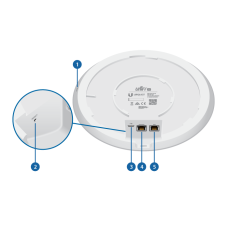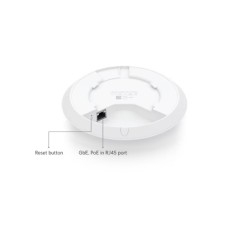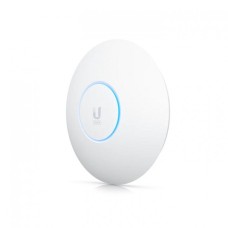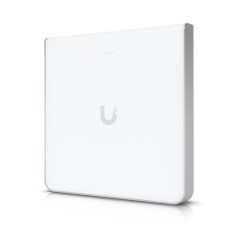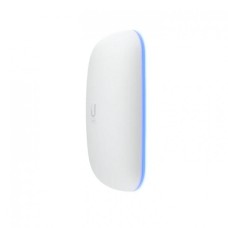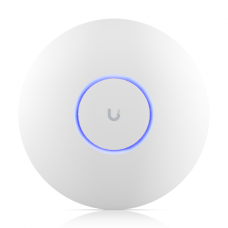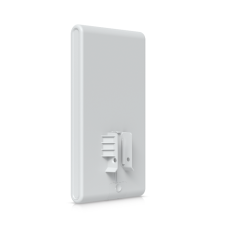
UniFi, Wi-Fi 6, and Wi-Fi 7 are related but distinct concepts in networking. Here’s a breakdown of each:
1. UniFi:
As mentioned earlier, UniFi is a product line from Ubiquiti Inc. that includes a range of networking hardware (such as routers, switches, access points, security gateways, etc.) and software for managing large-scale networks. It’s used to create and manage Wi-Fi networks in homes, businesses, schools, hotels, and other environments.
- UniFi Wi-Fi 6 Access Points: Ubiquiti offers access points in the UniFi line that support Wi-Fi 6 (discussed below), which brings improvements in speed, efficiency, and capacity compared to older Wi-Fi standards.
2. Wi-Fi 6 (802.11ax):
Wi-Fi 6 is the 6th generation of Wi-Fi technology, officially known as 802.11ax. It builds upon the previous Wi-Fi 5 (802.11ac) standard and brings several improvements:
Key Features:
- Faster Speeds: Offers higher maximum speeds (up to 9.6 Gbps under ideal conditions).
- Better Capacity: Supports more devices connected simultaneously without performance degradation. This is important in environments like offices, schools, or smart homes where many devices may be online at once.
- OFDMA (Orthogonal Frequency-Division Multiple Access): This technology improves efficiency by allowing the router to serve multiple devices at once, instead of one at a time.
- MU-MIMO (Multi-User, Multiple Input, Multiple Output): While Wi-Fi 5 introduced MU-MIMO for downlink (sending data), Wi-Fi 6 adds uplink MU-MIMO (receiving data), improving communication between routers and multiple devices.
- TWT (Target Wake Time): This feature allows devices to schedule when they wake up to send or receive data, saving battery life for mobile and IoT devices.
Benefits:
- Better performance in crowded environments: Improved speeds and efficiency in environments with many connected devices, like stadiums, offices, or homes with many IoT devices.
- Energy efficiency: Longer battery life for connected devices due to more efficient data transmission.
3. Wi-Fi 7 (802.11be):
Wi-Fi 7, also known as 802.11be and expected to be branded as Wi-Fi 7, is the next-generation Wi-Fi standard following Wi-Fi 6 and 6E. It is still in development, with full commercial rollout expected in the coming years (around 2024–2025). Wi-Fi 7 brings even more advanced technologies to meet the demands of future high-bandwidth applications like 8K streaming, AR/VR, and IoT ecosystems.
Key Features (Planned/Proposed):
- Faster Speeds: Wi-Fi 7 is expected to support speeds up to 30 Gbps, which is a huge leap from Wi-Fi 6.
- 320 MHz Channel Width: Wi-Fi 7 doubles the maximum channel bandwidth from 160 MHz in Wi-Fi 6 to 320 MHz, allowing more data to be transmitted at once.
- 16x16 MU-MIMO: Wi-Fi 7 increases the number of streams that can simultaneously send and receive data, improving communication efficiency and allowing more devices to stay connected at faster speeds.
- Multi-Link Operation (MLO): Devices can connect to different frequency bands (2.4 GHz, 5 GHz, 6 GHz) simultaneously, improving reliability, reducing latency, and increasing overall performance.
- Reduced Latency: A focus on reducing latency makes Wi-Fi 7 ideal for real-time applications such as gaming, virtual reality (VR), and video conferencing.
Benefits:
- Ultra-fast speeds: Ideal for very high-bandwidth applications like 8K streaming, cloud gaming, and AR/VR.
- More simultaneous connections: Supports a massive number of devices connected at high speeds with low latency.
- Improved performance in congested environments: Wi-Fi 7’s technologies will better handle interference and congestion in high-density environments.
Comparison: Wi-Fi 6 vs. Wi-Fi 7
| Feature | Wi-Fi 6 (802.11ax) | Wi-Fi 7 (802.11be) |
|---|---|---|
| Max Speed | ~9.6 Gbps | ~30 Gbps |
| Channel Width | Up to 160 MHz | Up to 320 MHz |
| MU-MIMO | 8x8 (uplink & downlink) | 16x16 |
| OFDMA | Yes | Yes, improved |
| Latency | Low | Lower |
| Multi-Link Operation | No | Yes |
UniFi and Wi-Fi 6/Wi-Fi 7
Ubiquiti’s UniFi line includes products that support Wi-Fi 6, and it is likely that they will develop and release products that support Wi-Fi 7 as the standard becomes finalized and commercially available.



